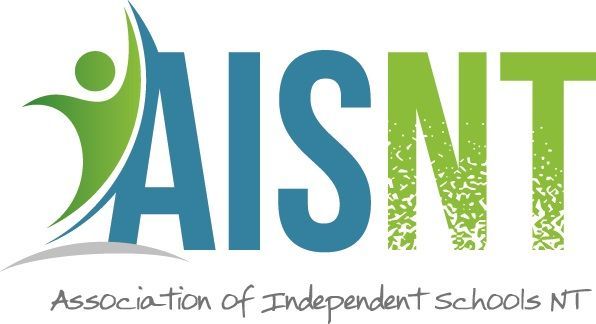Learning Is Our Game, But How do We Learn?
The highly skilled person cutting my very untidy hair was French having only been in Australia five months. My request to her was to make me look younger, which she felt she had achieved at the end of the session.
I had a delightful conversation with her, though I avoided using any French. I like the language and am still trying to learn it even at my age. I’m an avid user of the Duolingo App and have now done 502 lessons without a break. I normally do it as one of my first things in the day because I know I learn better then. I know if I want to succeed at a lesson I have to concentrate 100% and even than there are certain ways in which the French produce sounds but my ear is not accustomed to them and I complete miss them. Of course, our ears are connected to our brain and new sounds have to make that potentially perilous journey.
It reminds me of the time I was asked to speak at a Rotary Club in Hartford, Connecticut USA. At the conclusion of my talk, the President of the Club said, ”Well Chris we loved hearing you talk but didn’t understand a word of what you said.” Fortunately I have a good sense of humour and acknowledged how foreign the Australian accent is to East Coast Americans. As teachers we have to always remember that one of our vehicles for learning is language. I recall being pulled up during teacher training in a prac lesson, when I was moving enthusiastically around the class. The supervisor made the observation that if the students who were not 100% at hearing and could focus on my face then they would have a fighting chance of understanding what I was saying. I’ve never forgotten that piece of advice.
I think learning new things is such a wonderful exercise for your brain and your self - esteem. My grandchildren are always wanting to show me what they are learning. One of them comes in and says “Grandad can I have a history lesson.” After years of teaching it is not difficult to pluck something out of the air and make it interesting. But all the time I am looking at the grandchild or student to judge whether I am hitting the mark or not.
Good teachers are sensitive to people. They may have heaps of knowledge but if they don’t have people sensitivity, they will have trouble sharing that knowledge.
I continue to reflect on how people learn as I practise my mandolin and my tin whistle. If I’m learning a tune by reading the music, I initially stutter my way through it. I may have played the right notes, but the tune sounds nothing like it should. Part of the reason is playing it in a halting manner and not getting the timing right. If I play it every day, even once, I will get it right eventually and the correct tune will emerge. In my learning journey I know, at my age, that if I keep at it will happen and then I’ll have it forever. It is good for young students to realise this if it works for them. However, this is the way I learn, but others may learn in other ways and a good teacher makes a point of trying to understand this. Over my time teaching English, I have been through the “throw the grammar out stage” when I started, to it coming back years later, as educators realised you can paint a good picture if you have the right paints, and grammar helps provide some of those paints. Sure, some students just get it naturally, others need more structure or scaffolding, but sure as anything they all don’t need the same thing. It’s the same with phonics or no phonics in reading. Some of my Grandchildren just picked up reading like that, others really value phonics. By the way I learnt with phonics and appreciated doing so.
Class Rules - everyone deserves a good go. If people are going to learn they have to have a safe and stable environment where they can learn. The students must know the class rules and appreciate that everyone has the right to learn. I think it is a good idea if they are put up on a sign in the class. They are a good reminder that all need a chance.
Change is also helpful in the process of teaching. If it is the same old thing every day students become uninspired. Yes, in a teacher’s kit bag there should always be the capacity to inspire. Teachers can help their effectiveness by asking “How can I make this more inspirational.” It may be inspirational enough, but it doesn’t hurt to have this on a check list.
By the way it is always worth having a check list before a lesson, even if it is a mental one. However, if a teacher miss queues and the lesson is not working, there is little point in pressing on. Teachers must have the capacity to change tack- it has to be part of a teacher’s skill set, and I think a Principal can add value if they acknowledge this to their teachers.
Safety is really important. Students will learn better if they feel safe, they are not going to “fail” in front of the class and can come away from a lesson with some achievements. If a lesson is solely directed to the very bright then those who are not as able, but nevertheless may be reasonably able, will become demoralised if success for them is not built into the lesson. And that also goes for those who have learning challengers to. I had a young man in my year 8 SOCE class who had significant Asperger’s. I always made a point of greeting him as I walked past. He would reply, making observations about my beard or hair. Fine and I didn’t mind. He had an ISA in class to help him remain on task. One of his great gifts was General Knowledge. We started each lesson with a quick GK quiz and he “blitz” it every time. He felt his gifts were being appreciated and the other students admired his capacity. That then helped him, and probably the others, to get the lesson off to a good start. Win, win!
Changing the environment can be valuable. Taking students outside, breaking into groups of 4 and preparing something to bring back to the class is a workable idea. The outside is that welcome change of environment and usually works. Using the school’s grounds creatively is of great value.
Let’s talk dogs. I have always loved dogs and had dogs. They can be great companions. Dogs are a common part of the average family and pick up interesting habits readily. Dogs learn because they want to please and also want to get something they like. I feed two young dogs each morning. They each get a chicken drumstick. One is a average sized pure-bred Kelpie and the other is a miniature Cocker Spaniel. They are both good hearted lovely dogs. Each morning, they arise from their canine slumber and make their way down to the fence around my flat. We all live on the same block. Both wait for me to emerge, and their actions are exactly the same each day.
The Kelpie when she sees me, bounces up and down at the fence eyes anxiously anticipating until I give her a treat. The little Spaniel sits in exactly, yes exactly, the same place, peering through the same two slats of the picket gate. I give her a drumstick through number two gap in the fence every day. When they have received their treat they smile, happy that their education has resulted once again in a reward. Obviously, humans are not dogs. However, like the dog, Students and indeed Teachers also like to be rewarded for doing the right thing or a good thing. Such success, if noticed, should receive some acknowledgement even if it is “well done” or “good on you”. In the junior school I was dropped from the school cricket team, and so I should have been as I was not an opening batsman’s bootlace. It was Friday afternoon, and I stayed and watched the team. After the game the teacher came over to me and said how impressed he was that I had remained behind to support the team. I’ve never forgotten that and hopefully I have done plenty of such acknowledgement throughout my career.
I recall at a staff meeting held before school looking at the faces of the teachers, before they moved into the action of the day. The meeting had value to deliver encouragement or a good idea but not for them to absorb a detailed important message unless it was an emergency. Some would be mentally occupied thinking of their first lesson, others distressed because they had had an argument with their oldest child, others bemoaning their bank balance or some worried about a sick pet etc., etc. Not a good time for important information but a good time for a good and helpful thought. As Principals we can often kid ourselves that because it has been said it has been received. It may not have been.
Well, how do people learn? Answer - in so many different ways. We are not all the same. However, some ways are more common than others and it is of value to ongoingly identify these. After all this is surely our stock in trade as teachers and what an exciting and interesting challenge to have.
Written by Chris Tudor



